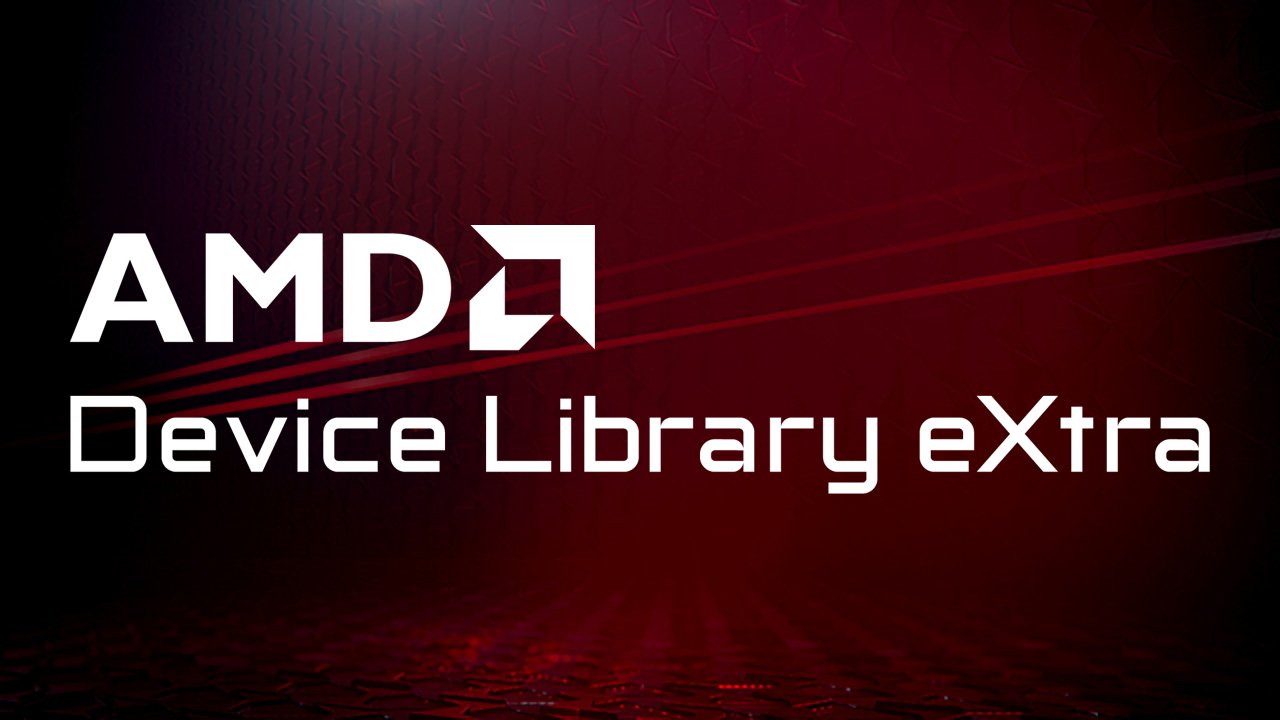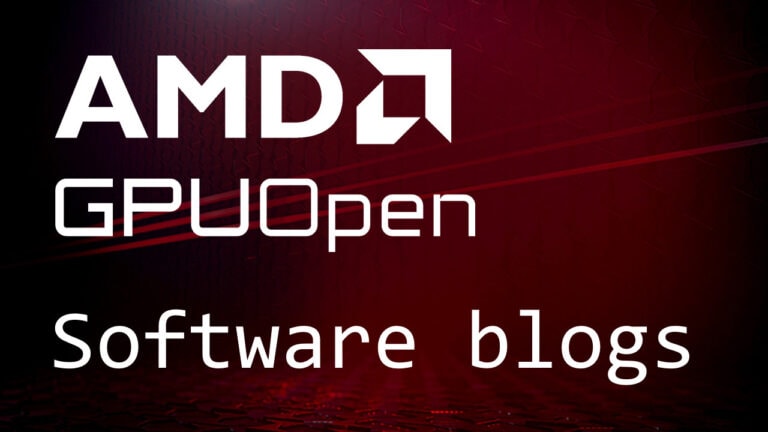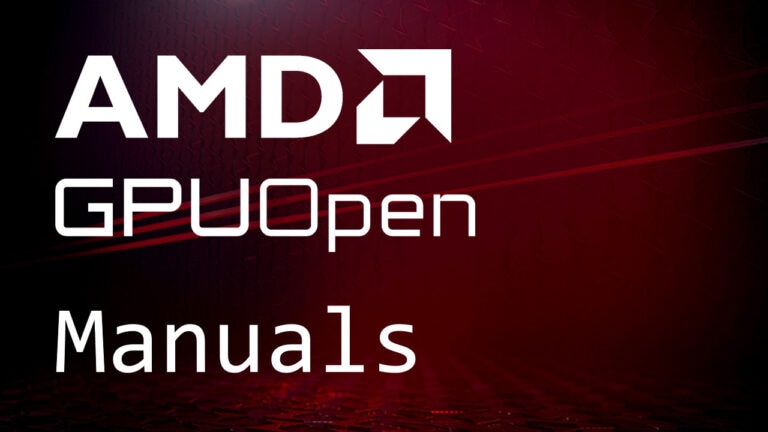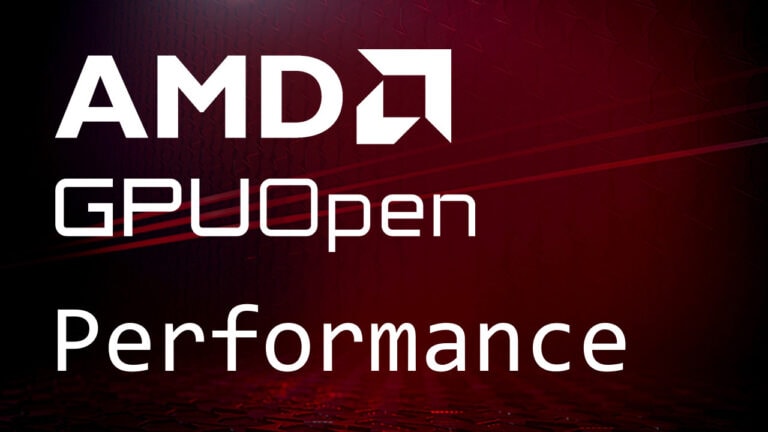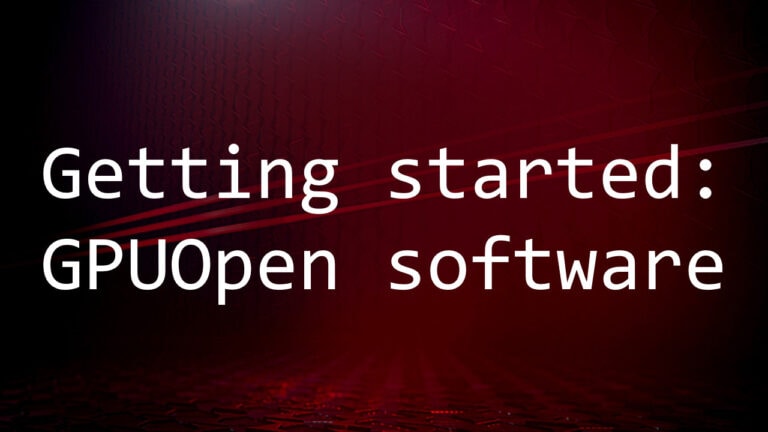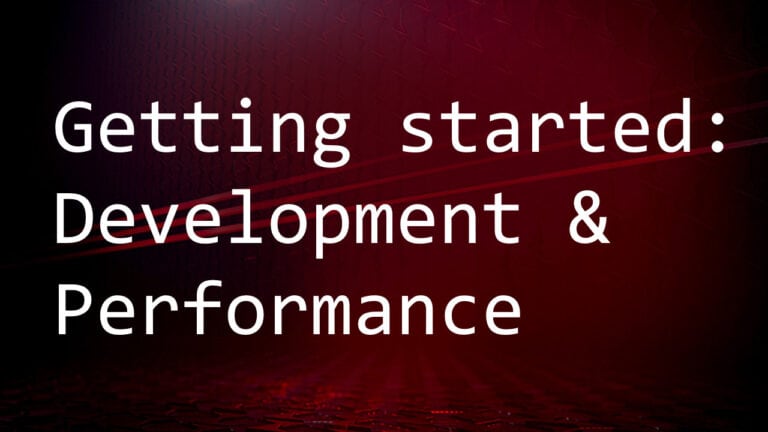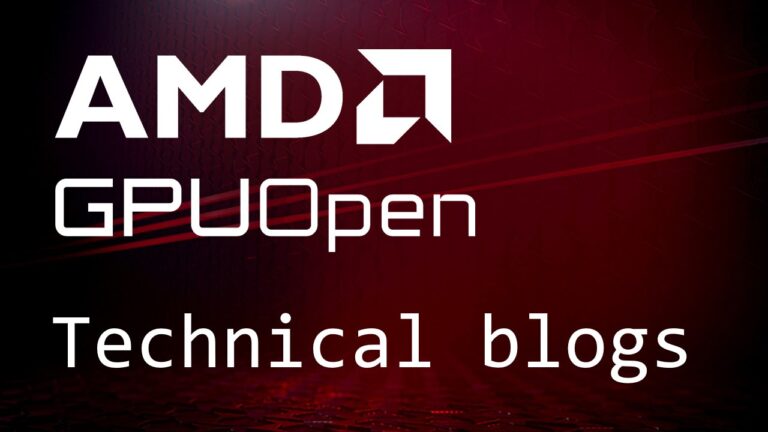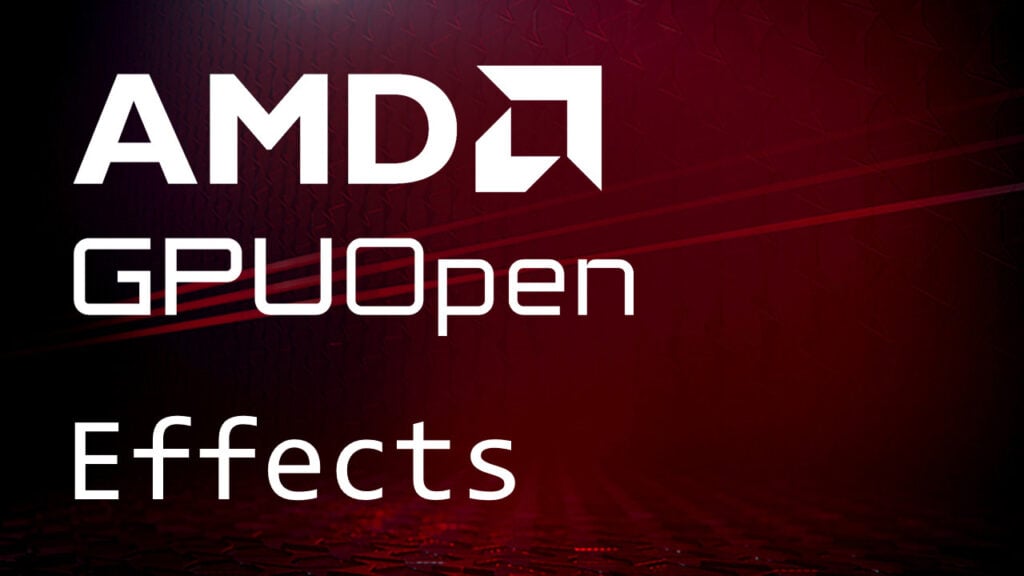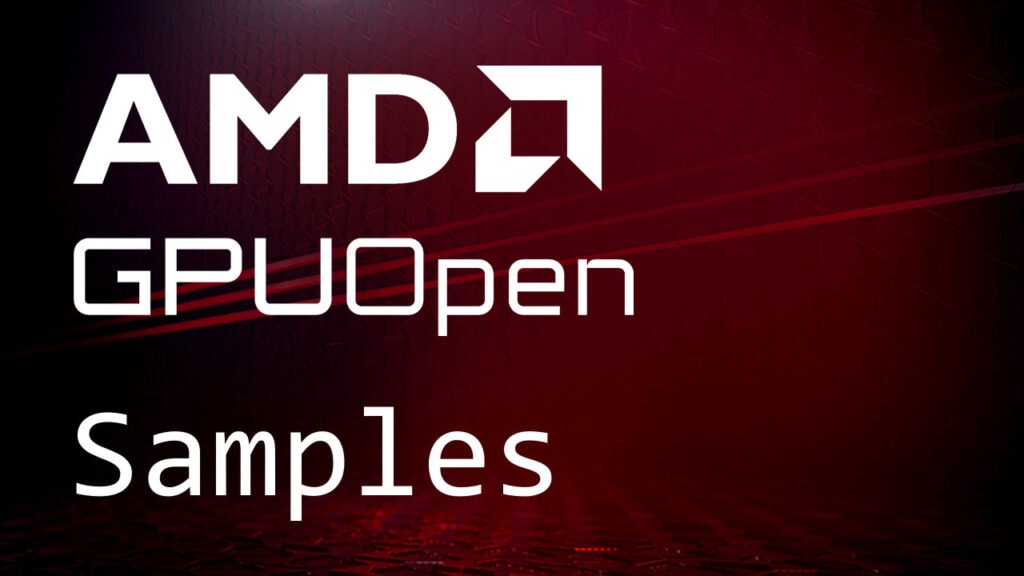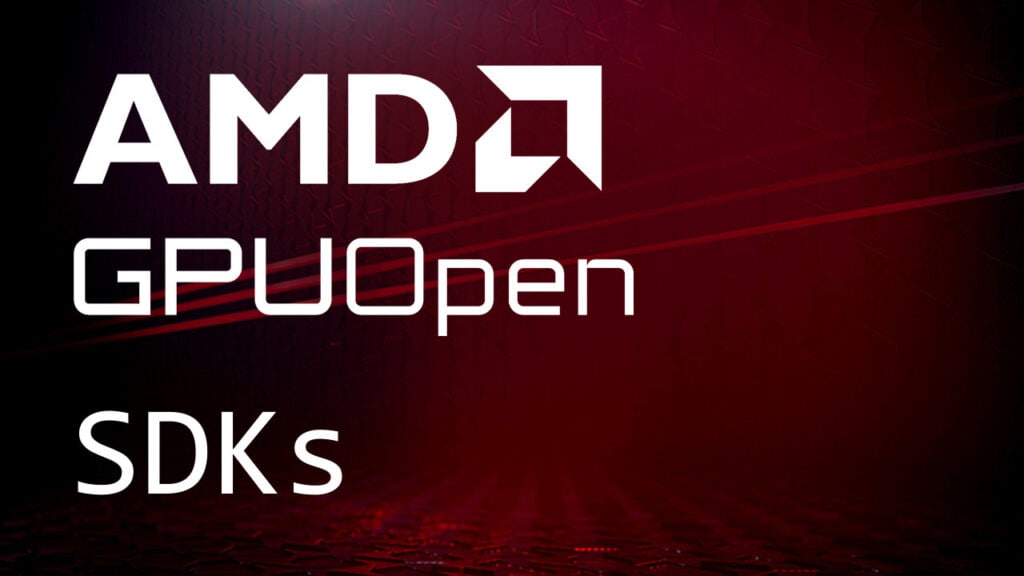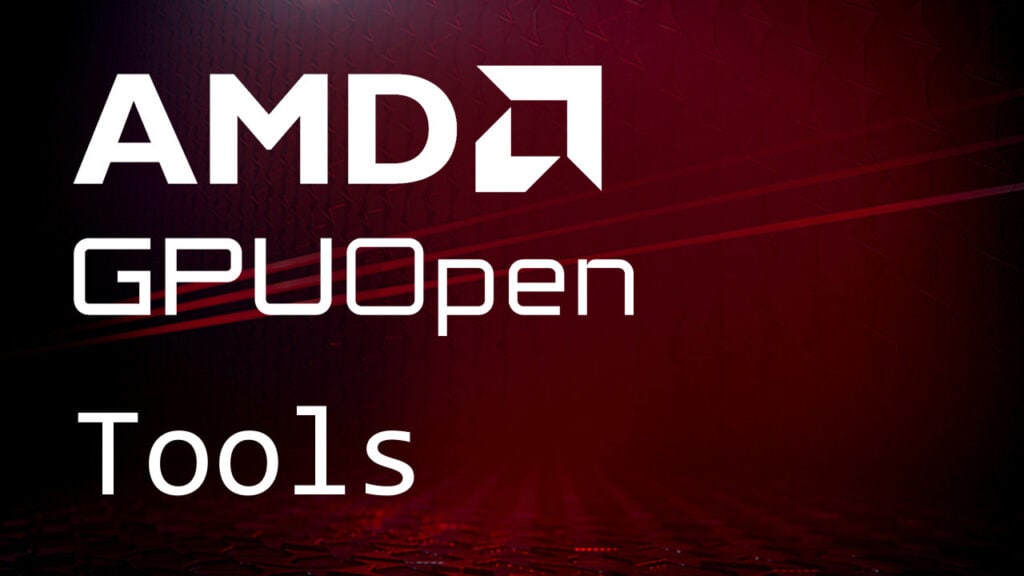3DSettingsEvent
Demonstrates how to register and unregister for notifications when 3D Graphics settings change, and perform related testing when programming with ADLX.
Sample Path
/Samples/C/3DGraphics/3DSettingsEvent
Code
//
// Copyright (c) 2021 - 2023 Advanced Micro Devices, Inc. All rights reserved.
//
//-------------------------------------------------------------------------------------------------
#include "SDK/ADLXHelper/Windows/C/ADLXHelper.h"
#include "SDK/Include/I3DSettings.h"
// Block event
HANDLE blockEvent = NULL;
// Get the GPU unique name
void GPUUniqueName(IADLXGPU* gpu, char* uniqueName);
// Call-back to handle changed events
adlx_bool ADLX_STD_CALL on3DSettingsChanged(IADLX3DSettingsChangedListener* pThis, IADLX3DSettingsChangedEvent* p3DSettingsChangedEvent)
{
ADLX_RESULT res;
IADLXGPU* gpu = NULL;
res = p3DSettingsChangedEvent->pVtbl->GetGPU(p3DSettingsChangedEvent, &gpu);
if (ADLX_SUCCEEDED (res))
{
char uniqueName[128] = "Unknown";
GPUUniqueName(gpu, uniqueName);
adlx_bool antiLagChanged = p3DSettingsChangedEvent->pVtbl->IsAntiLagChanged(p3DSettingsChangedEvent);
printf("\tGPU: %s AntiLag changed: %d\n", uniqueName, antiLagChanged);
}
SetEvent(blockEvent);
// Release the GPU interface
if (gpu != NULL)
{
gpu->pVtbl->Release(gpu);
gpu = NULL;
}
// Return true for ADLX to continue notifying the next listener, or false to stop notification
return true;
};
static IADLX3DSettingsChangedListenerVtbl vtbl = {&on3DSettingsChanged};
static IADLX3DSettingsChangedListener call = {&vtbl};
int main()
{
// Define return code
ADLX_RESULT res = ADLX_FAIL ;
// Initialize ADLX
res = ADLXHelper_Initialize();
if (ADLX_SUCCEEDED (res))
{
// Create block event
blockEvent = CreateEvent(NULL, TRUE, FALSE, NULL);
// Get system services
IADLXSystem* sys = ADLXHelper_GetSystemServices();
// Get GPUs
IADLXGPUList* gpus = NULL;
res = sys->pVtbl->GetGPUs(sys, &gpus);
// Get 3DSettings service
IADLX3DSettingsServices* d3dSettingSrv = NULL;
res = sys->pVtbl->Get3DSettingsServices(sys, &d3dSettingSrv);
if (ADLX_SUCCEEDED (res))
{
// Get GPU interface
IADLXGPU* gpu = NULL;
adlx_uint index = 0;
res = gpus->pVtbl->At_GPUList(gpus, index, &gpu);
// Get change handle
IADLX3DSettingsChangedHandling* changeHandle = NULL;
res = d3dSettingSrv->pVtbl->Get3DSettingsChangedHandling(d3dSettingSrv, &changeHandle);
if (ADLX_SUCCEEDED (res))
{
// Add call-back
ADLX_RESULT addListenerRes = changeHandle->pVtbl->Add3DSettingsEventListener(changeHandle, &call);
// Change anti-lag state
IADLX3DAntiLag* antiLag = NULL;
d3dSettingSrv->pVtbl->GetAntiLag(d3dSettingSrv, gpu, &antiLag);
adlx_bool enable;
antiLag->pVtbl->IsEnabled(antiLag, &enable);
printf("\nWaiting for 3DSettings change event (5s)...\n");
antiLag->pVtbl->SetEnabled(antiLag, !enable);
WaitForSingleObject(blockEvent, 5000);
if (ADLX_SUCCEEDED (addListenerRes))
{
// Remove call-back
res = changeHandle->pVtbl->Remove3DSettingsEventListener(changeHandle, &call);
if (ADLX_FAILED (res))
printf("\nRemove 3DSettings event listener failed\n");
}
// Release the AntiLag interface
if (antiLag != NULL)
{
antiLag->pVtbl->Release(antiLag);
antiLag = NULL;
}
}
// Release the changeHandle interface
if (changeHandle != NULL)
{
changeHandle->pVtbl->Release(changeHandle);
changeHandle = NULL;
}
// Release the GPU interface
if (gpu != NULL)
{
gpu->pVtbl->Release(gpu);
gpu = NULL;
}
}
else
{
printf("Failed to get 3DSettings services\n");
}
// Release the 3DSettingsService interface
if (d3dSettingSrv != NULL)
{
d3dSettingSrv->pVtbl->Release(d3dSettingSrv);
d3dSettingSrv = NULL;
}
// Release the GPUs list interface
if (gpus != NULL)
{
gpus->pVtbl->Release(gpus);
gpus = NULL;
}
}
else
{
printf("ADLX initialization failed\n");
return 0;
}
// Destroy ADLX
res = ADLXHelper_Terminate();
printf("Destroy ADLX res: %d\n", res);
// Close event
if (blockEvent)
CloseHandle(blockEvent);
// Pause to see the print out
system("pause");
return 0;
}
void GPUUniqueName(IADLXGPU* gpu, char* uniqueName)
{
if (NULL != gpu && NULL != uniqueName)
{
const char* gpuName = NULL;
ADLX_RESULT res1 = gpu->pVtbl->Name(gpu, &gpuName);
adlx_int id;
ADLX_RESULT res2 = gpu->pVtbl->UniqueId(gpu, &id);
if (ADLX_SUCCEEDED (res1) && ADLX_SUCCEEDED (res2))
sprintf_s(uniqueName, 128, "name:%s, id:%d", gpuName, id);
}
}


